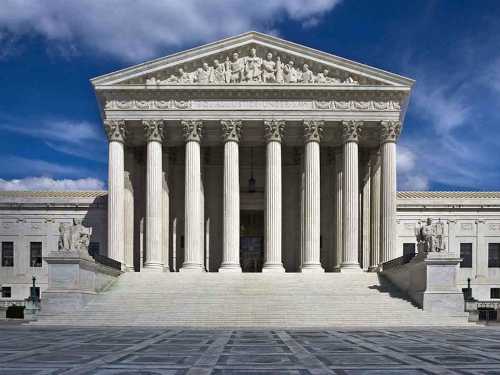
LEGAL BACKGROUND
On November 20, 2014, President Obama announced the DAPA (Deferred Action for Parents of Americans) initiative as part of the series of administrative reforms (“executive actions”) on immigration. Soon after the announcement, 26 state (including Texas) filed a lawsuit in federal district court to try to block the implementation of DAPA and expanded DACA (Deferred Action for Childhood Arrivals).
The District court issued a “preliminary injunction,” prohibiting the government from taking any further steps to implement the DAPA and expanded DACA initiative. The government appealed this decision to the Fifth Circuit Court of Appeals, which confirm or upheld the district court’s decision.
Following the Fifth Circuit’s decision, the U.S. Department of Justice announced its intention to seek Supreme Court review. The Supreme Court heard oral argument on April 18, 2016 and is set to give its final decision on June 28.
WHAT ARE THE POTENTIAL OUTCOMES
The Court dismisses the case for lack of standing. If the Court dismisses for lack of standing, the entire case will come to an end and the injunction will be lifted; allowing the government to implement DAPA and expanded DACA.
The Court reverses the Fifth Circuit on a critical legal issue, allowing the government to implement DAPA and expanded DACA. However, the law suit will continue and the district court could go on to decide if this programs are constitutional. The decision of the district court could eventually be appealed, meaning the case could go to the Fifth Circuit and the Supreme Court a second time.
The Court affirms the Fifth Circuit decision. This would mean that the Supreme Court agrees with the previous court rulings and does not allow DAPA and expanded DACA to move forward and the case would go back to the district court for a final decision. This means that eventually the case could be appealed, going back to the Fifth Circuit and the Supreme Court for a second time.
Split decision. There are currently only eight Supreme Court justices after the death of Justice Antonin Scalia. If the justices split 4-4, which is possible, this would mean that the lower court’s injunction would be upheld, essentially ending DAPA.
It is difficult to predict which side will win, but it is clear that whatever the outcome is, we are far from hearing the last word on DAPA.